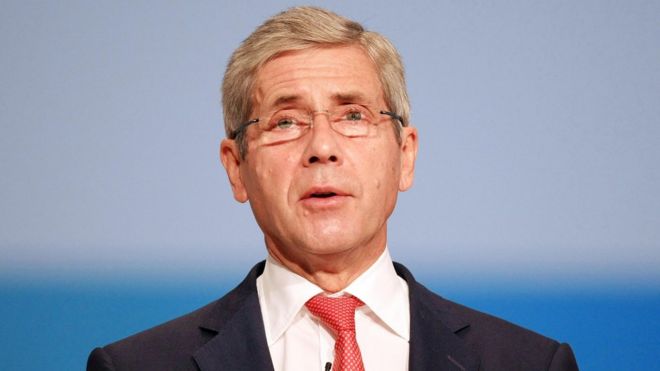
Speaking to the chairman of a major bank last week, I asked what role representatives of the City should play in the debate about whether the UK should remain in or leave the European Union.
The UK's financial services sector is, after all, one fundamentally affected by our relationship with the EU.
And, at present, Britain enjoys a substantial trade surplus with the rest of Europe in banking, asset management and connected services.
"All the banks should come out and say we should definitely leave," he said.
"Then the public will definitely vote to stay in. Which is what we want."
So far, the banks don't appear to be listening to this wily advice. The City UK, which lobbies on behalf of financial services, has spoken of the "significant risks" of leaving the EU.
The British Banking Association has said that resources should be committed to building closer ties with Brussels. Not breaking them.
Today sees the launch of the Britain Stronger in Europe campaign, which will lead the push to persuade UK voters that staying in the EU is better than leaving.
Maybe after taking the advice of that banking chairman, there are no bankers on the board of Stronger in Europe.
The campaign will be led by Lord Rose, who, as plain old Stuart Rose, led Marks & Spencer back to some semblance of financial health.
The present chairman of Ocado has certainly been no particular friend of the European Union in the past.
He has spoken witheringly of over-regulation from Brussels and has described as "scaremongering" those who have argued that a number of companies could change where they are headquartered if Britain were to leave the EU.
So, Lord Rose could be described as a bit of a sceptic.
All to the good, his backers tell me. It is the very fact that Lord Rose is not a paid up member of the pro-Europe brigade that makes his arguments more persuasive.
"Those of you who know me will know that I am not an uncritical fan of the European Union, far from it," Lord Rose will say at the launch event this morning.
"That's why I signed a letter arranged by Business for Britain [the EU-sceptic campaign group] calling for reform of the EU.
"Wanting reform, however, is not the same as wanting to leave. Make no mistake, I am part of this campaign because I believe that we are stronger, better off and safer inside Europe than we would be out on our own."
Both sides in the Europe debate - remain in or leave - believe that business leaders will play a significant role in the battles ahead.
The reasons are pretty simple.
First, business people are not politicians and - apart from the poor old bankers - are listened to with a modicum of greater trust by the public.
It is argued by those in the "remain in" campaign that one of the turning points in the Scottish referendum battle was the letter signed by 133 business leaders saying that independence was a risk to the economy.
At some point, expect something similar from Stronger in Europe. Any perceived risk to the economy from leaving Europe, the pro-EU camp believes, will play strongly with the public.
That feeds into the second and connected issue of jobs, with both sides aware that the public may very well sit up and take notice if they think their jobs are on the line.
How the Stronger in Europe campaign would love a series of large multinational businesses to announce that investment and jobs were at risk if Britain left the EU.
The number of jobs associated with Britain's membership of the EU is certainly disputed.
In June 2014, Sir Danny Alexander, when he was Chief Secretary to the Treasury, said 3.3 million jobs were "connected to Britain's place in Europe" and were a "measure of the risk that isolationists would have us take".
The 3.3 million figure is based on research over a decade old which extrapolates the number from the value of the UK's exports to the rest of the EU.
And, of course, it is a stretch to suggest that if Britain left the EU, all exports to Europe would stop. Or not go elsewhere.
Even the Treasury analysis on which Sir Danny's statement was based says that "it is not an estimate of the impact of EU membership on employment".
From all the business leaders I have spoken to, there is concern that the uncertainty created by Britain leaving the EU could have an impact on investment decisions and jobs.
Capital investment by businesses can be moved very quickly from country to country, depending on judgements over long-term stability.
No comments:
Post a Comment